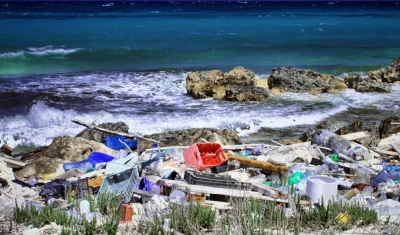Human Rights in Cyber-Space
Event


Microsoft NYC
This side-event at the UN Human Rights Council will discuss the applicability of existing human rights instruments to activities in cyber-space, which affect the enjoyment of human rights, and the need to continuously reassess the application of the existing legal framework in the light of new technological developments. This implies the recognition of additional implications and challenges to the promotion and protection of existing rights including a responsibility of private actors, to protect the basic needs and interests of individuals in cyber-space.
The panel will focus, firstly, on questions regarding the direct and indirect regulatory responsibility of the State to respect, promote and protect, in the cyber-space, recognized human rights such as freedom of expression and of information, and the right to privacy, as well as the right to be free from discrimination, and the right to enjoy the benefits of scientific progress. Secondly, the panel will consider the role and responsibilities of multiple stakeholders, including states, inter-governmental organizations, IT companies, and on-line communities.
Finally, it will also address the consideration of updated interpretations of existing rights and notably the possible need to reflect how existing human rights could yield new obligations when applied to modern digital technology, such as the ‘right to access ’ cyber-space as consequence of the right to enjoy the benefits of scientific progress (pursuant to Article 15 (b) ICESC) and to operate therein free from discrimination (pursuant to Article 2 ICESC), the entitlement to exercise control over information and data pertaining to one-self (information self-determination and data portability), including the ‘right’ to data protection, the so-called ‘right to be forgotten ’ or the capability to exercise control over digital life after physical death (pursuant to the right to privacy Article 17 ICCPR / 12 UDHR), or – when following the UN Guiding Principles on Business and Human Rights - a responsibility of ICT companies to enforce their terms of service in the spirit of due process
Welcome Remarks
- H.E. Aviva Raz Shechter, Permanent Representative of the State of Israel to the UN in Geneva
- H.E. Antje Leendertse, Permanent Representative of the Federal Republic of Germany to the UN in Geneva
Moderation
- Peggy Hicks, Director, Thematic Engagement, Special Procedures and Right to Development Division, OHCHR
Panelists
- Professor Anja Seibert-Fohr, Heidelberg University, Public International Law and International Human Rights: Challenges in applying international human rights law in cyberspace
- Professor Yuval Shany, Hebrew University of Jerusalem and Member of the Human Rights Committee: ‘Overlaps and gaps between off-line and on-line human rights’
- Ilia Siatitsa, Research Fellow, Geneva Academy: 'The special challenge of regulating on-line speech’
- Jean-Yves Art Sr, Director, Strategic Partnerships, Microsoft : ‘The role of the IT industry in the protection and promotion of on-line human rights ’
Co-Organizers
This side event is co-organized with the Permanent Missions of Israel and Germany to the UN in Geneva and the Cyber Law Program at the Hebrew University of Jerusalem’s Cyber Security Research Center
Refreshments Before the Event
A sandwich lunch will be served before the event.
Registration
A valid UN badge is necessary to enter the Palais des Nations. Persons not accredited will have to register via the electronic platform. Select the appropriate event in the drop-down list (12 March - 13:30 (Room XXV) - PM of Israel - Meeting on 37th Session) and upload the flyer on the platform.









